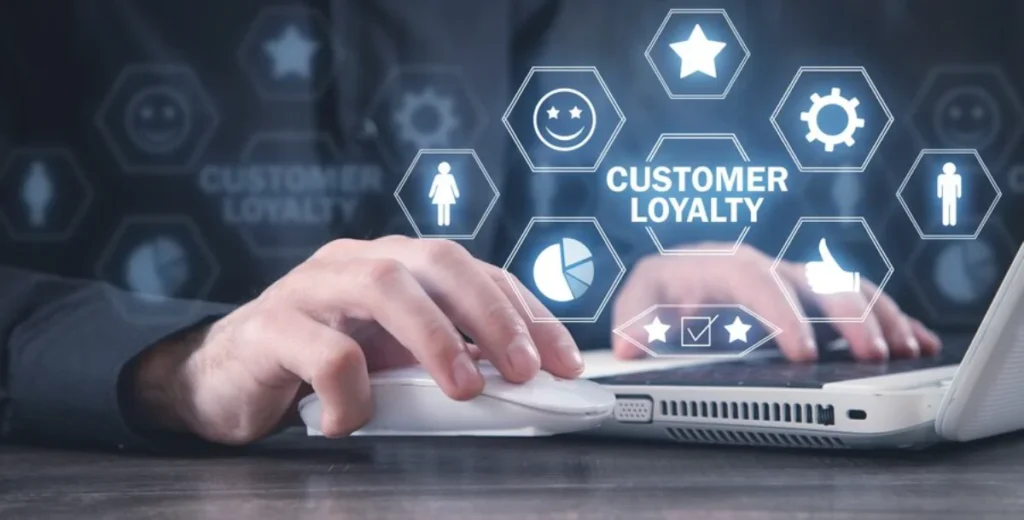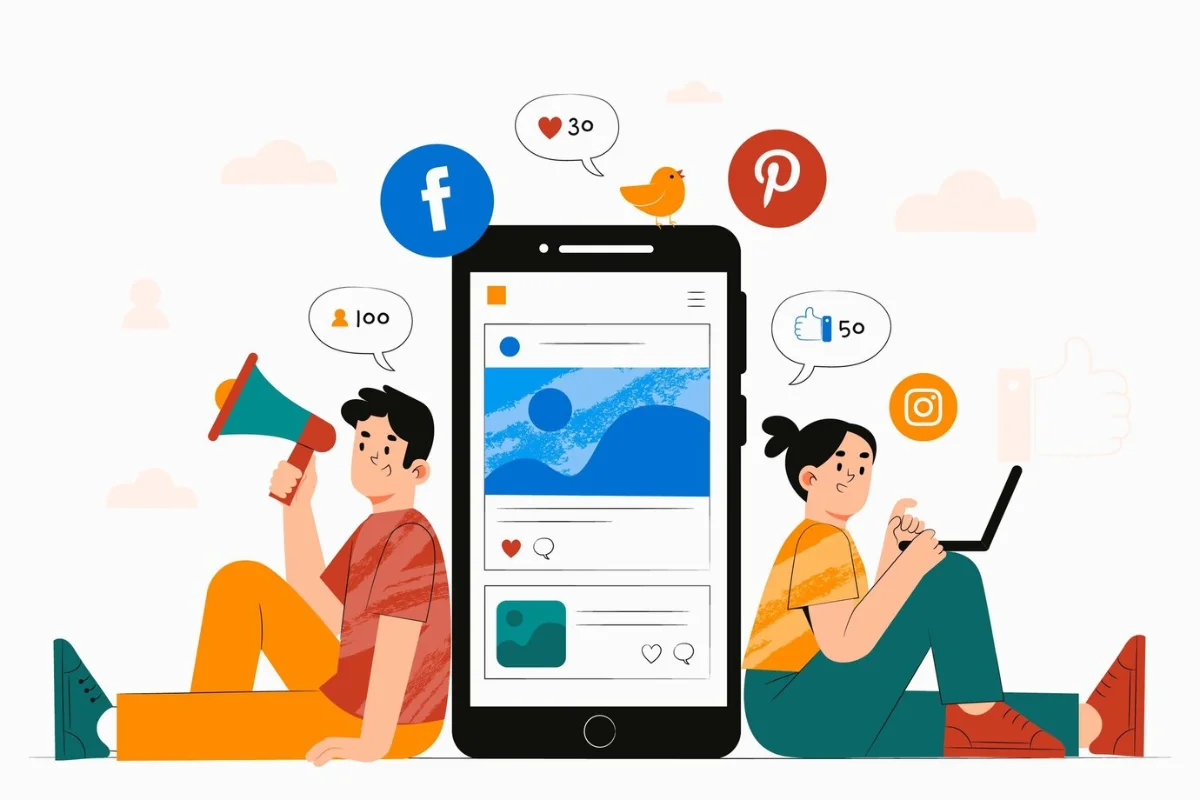The E-commerce Blog

How to Enhance Customer Loyalty Through Personalised Marketing
Customer loyalty is a vital component of long-term business success. As competition grows in almost every industry, businesses need to move past simple transactions. They must focus on creating strong relationships with their customers. One of the most effective ways to achieve this is through personalised marketing strategies. Using customer data, businesses can craft targeted promotions and personalised experiences. This builds loyalty and encourages repeat purchases.
This guide looks at how personalised marketing boosts customer loyalty. It offers simple steps to create a strong strategy that builds better relationships and keeps customers coming back.
Quick Guide
- Know Your Customers – Use data analytics to learn about their preferences, shopping habits, and behaviours.
- Segment Your Audience – Group customers by demographics, buying habits, and interests. This helps you target your marketing better.
- Use Personalised Communication – Send tailored messages and offers through emails, SMS, and app notifications.
- Create Customer Loyalty Programs – Reward customers with points, discounts, and special deals. This encourages them to come back again.
- Use Targeted Promotions – Give special deals that match each customer’s preferences.
- Optimise Multi-Channel Engagement – Ensure a seamless experience across online, mobile, and in-store interactions.
- Use AI and Automation – Implement AI-driven recommendations and chatbots for personalised customer interactions.
- Measure and Adjust Strategies – Keep tracking customer responses. Change marketing strategies to boost engagement.
Core Concept: The Power of Personalised Marketing in Customer Loyalty
Personalised marketing strategies focus on customising efforts using customer data, preferences, and behaviour. Personalised marketing is different from traditional marketing. Instead of a one-size-fits-all method, it provides relevant content, recommendations, and offers for each customer.
Why Personalisation Works:
- Stronger Customer Relationships – Personalisation makes customers feel valued, fostering trust and long-term relationships.
- Higher Engagement Rates – Targeted promotions connect well with consumers. This leads to higher click-through rates and more conversions.
- Increased Customer Retention – A tailored approach encourages repeat purchases and strengthens brand loyalty.
- Better Customer Experience – Giving helpful recommendations boosts shopping satisfaction.
- Better ROI on Marketing Efforts – Personalised campaigns usually bring in more returns than generic mass marketing.
Step-by-Step Guide to Implementing Personalised Marketing for Customer Loyalty

1. Collect and Analyse Customer Data
- Use CRM systems, website analytics, and social media insights to gather data.
- Track customer preferences, purchase history, and engagement patterns.
- Use AI and machine learning tools to process and analyse this data efficiently.
2. Segment Your Customer Base
- Divide customers into groups based on demographics, behaviour, and purchase history.
- Create personas for different customer segments to tailor marketing messages.
- Offer exclusive customer loyalty programmes for high-value segments.
3. Implement Personalised Email Marketing Campaigns
- Use dynamic content to tailor emails based on customer preferences.
- Send birthday discounts, special offers, and product recommendations.
- A/B test email subject lines and content for better engagement.
4. Develop Targeted Promotions and Offers
- Offer discounts and promotions based on purchase history.
- Create location-based offers using geotargeting.
- Utilise limited-time personalised discounts to encourage urgency.
5. Customise Website and Mobile App Experience
- Implement AI-powered recommendation engines to display personalised product suggestions.
- Provide a customised homepage experience based on browsing history.
- Offer chatbot assistance tailored to individual customer needs.

6. Leverage Social Media Personalisation
- Run targeted ads based on user interactions and interests.
- Engage with customers by responding to comments and messages in a personalised manner.
- Use user-generated content to create authentic, relatable marketing campaigns.
7. Enhance Customer Loyalty Programmes with Personalisation
- Offer rewards based on individual customer preferences.
- Implement tiered loyalty programmes to encourage higher engagement.
- Provide exclusive early access to sales and product launches.
8. Utilise SMS and Push Notifications Effectively
- Send personalised alerts about discounts, abandoned carts, and loyalty rewards.
- Use location-based messaging to promote nearby store offers.
- Ensure notifications add value rather than becoming intrusive.
9. Monitor and Optimise Your Strategies
- Track key performance metrics like customer retention rates and engagement.
- Use customer feedback and surveys to refine personalisation efforts.
- Continuously adapt strategies based on market trends and customer behaviour.
Expert Advice
- Use AI-powered chatbots to enhance customer service and provide instant personalised assistance.
- Incorporate predictive analytics to anticipate customer needs and tailor promotions accordingly.
- Reward customer referrals by offering personalised incentives for word-of-mouth marketing.
Pro Tip: Personalised recommendations from past purchases can boost conversion rates. They also help build long-term loyalty.
Things to Consider
- Data Privacy Compliance – Follow GDPR and other data protection rules when you collect and use customer data.
- Avoid Over-Personalisation – Excessive personalisation may feel intrusive; balance relevance with subtlety.
- Test and Iterate – Regularly check and tweak marketing strategies to match changing customer needs.
Important: Avoid overwhelming customers with excessive messages. Too much personalisation can feel intrusive rather than engaging.
Best Practices & Additional Insights
- Integrate Omni-channel Personalisation – Ensure a seamless, personalised experience across online and offline touchpoints.
- Use Personalisation in Customer Support – Address customers by name and refer to past interactions for a more engaging experience.
- Encourage User-Generated Content – Real customer reviews help build trust and boost engagement with personalised product recommendations.
Secret Tip: Use behavioural triggers like abandoned cart reminders and birthday discounts. They help create a smooth and personalised experience for customers.
FAQs
How does personalised marketing impact customer loyalty?
Personalised marketing builds stronger ties with customers. This results in better retention, more engagement, and higher sales. Customers are more likely to remain loyal to brands that recognise their preferences and cater to their needs.
What are the best tools for implementing personalised marketing?
The popular tools for personalised marketing are:
- CRM systems like Salesforce
- Email marketing platforms such as Mailchimp
- AI-driven analytics tools
- Personalisation engines like Dynamic Yield
Can small businesses implement personalised marketing effectively?
Yes! Small businesses can boost customer loyalty even with tight budgets. They can use smart strategies like personalised email marketing, social media engagement, and targeted promotions. These methods are cost-effective and effective at building strong relationships with customers.
How do I measure the success of my personalised marketing efforts?
Key performance indicators (KPIs) are important metrics. They include:
- Customer retention rates
- Email open rates
- Conversion rates
- Average order value
- Engagement levels on digital channels
What role does AI play in personalised marketing?
AI helps businesses analyse large data sets. It predicts customer preferences and automates personalised recommendations. This makes marketing efforts more efficient.
Building Long-Term Customer Relationships Through Personalisation
Personalised marketing strategies help build and keep customer loyalty. They are crucial in today’s competitive market. Using data insights, targeted promotions, and loyalty programs, businesses can create experiences that engage and satisfy customers.
Implementing personalised marketing requires a thoughtful approach, balancing data-driven insights with ethical considerations. By refining strategies with customer feedback and new trends, businesses can build loyalty and support growth.
Now is the time to embrace personalised marketing and elevate your brand’s customer experience. Start small, test different approaches, and optimise your strategies for maximum impact!









